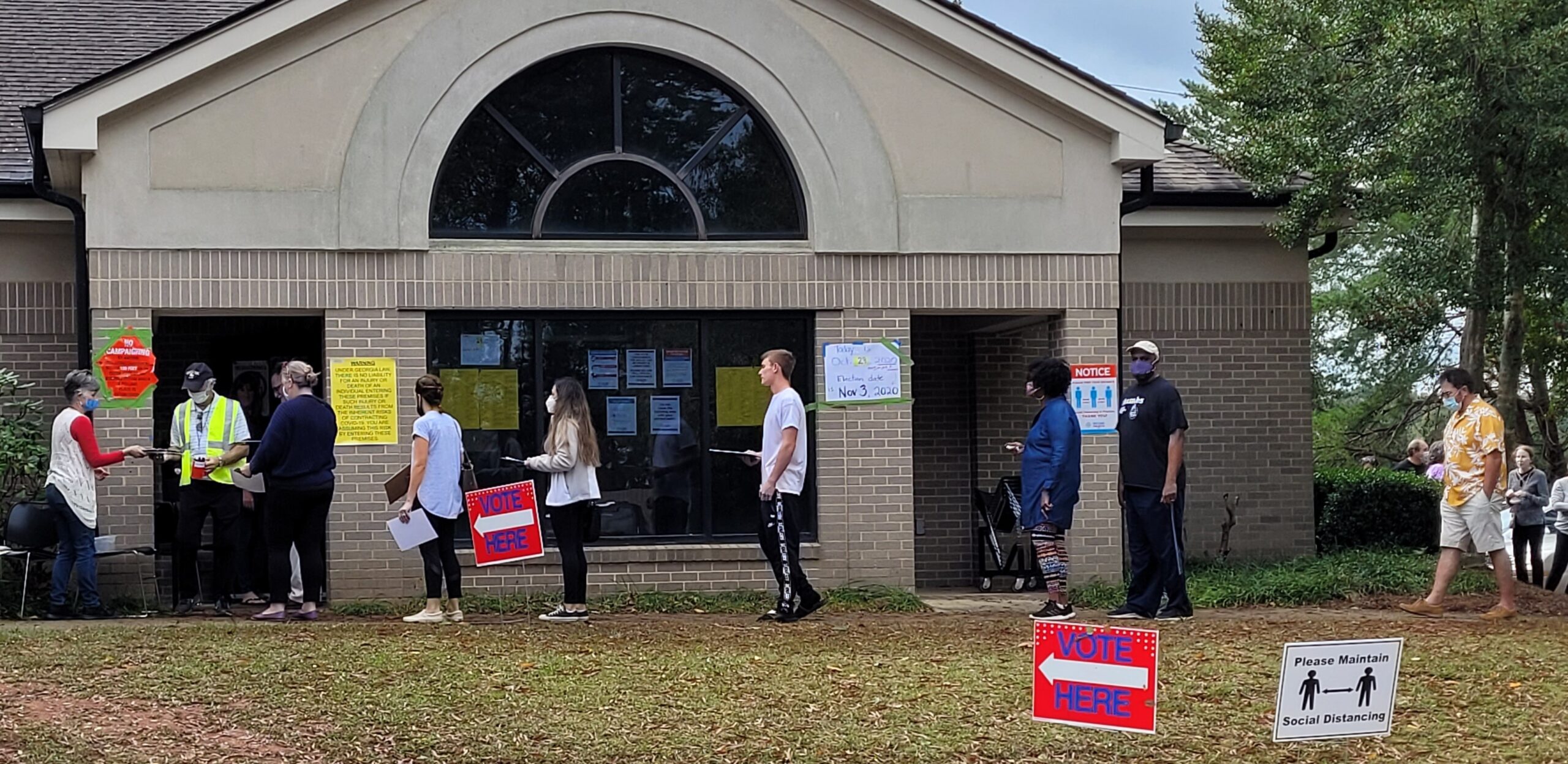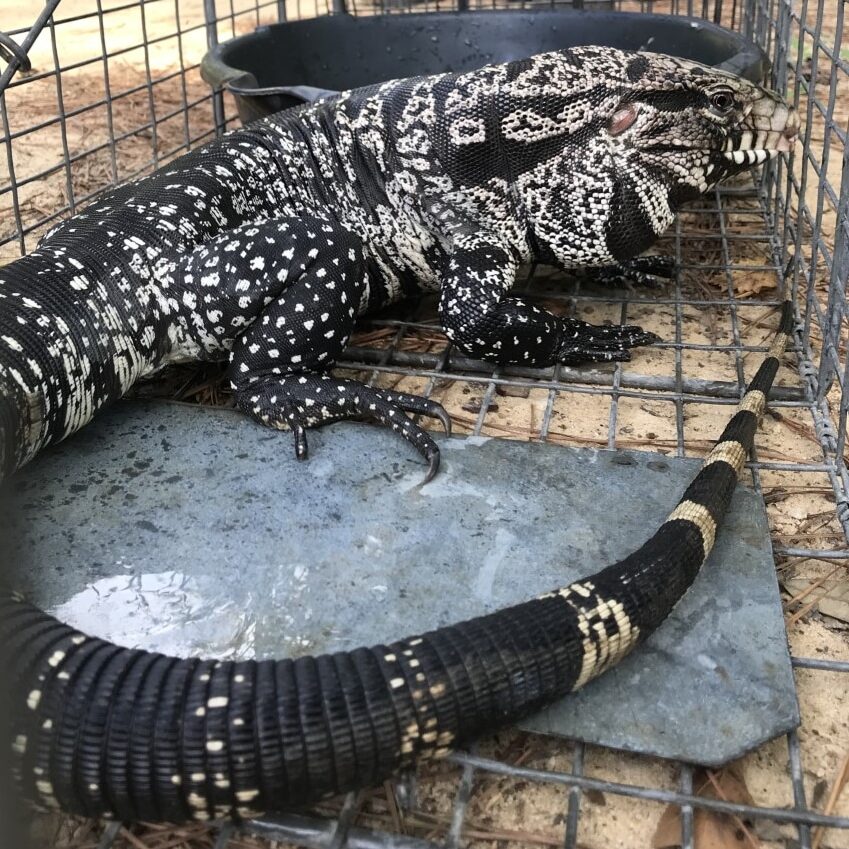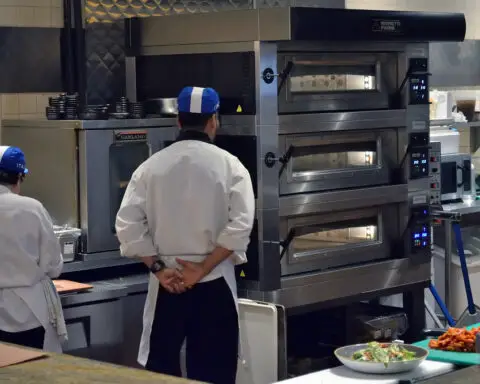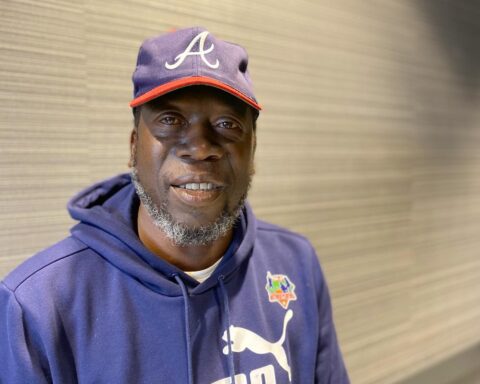The end of a long election season interrupted by the COVID-19 pandemic and domestic strife is in sight.
More than 3.9 million Georgians have already cast their ballots before Election Day, but the final tally on Tuesday could count as many as 2 million more expected to line up to vote, smashing turnout records.
Georgia appears to have transitioned from a solid red state to a genuine battleground, where Democrats have a shot at races up and down the ballot, including Georgia’s 16 electoral votes for president, two U.S. Senate seats and control of the state House of Representatives.
Democrats are betting on Georgia’s swing state status, sending Democratic candidate Joe Biden, his running mate Kamala Harris and former President Barack Obama to campaign in the state in the final week of the race.
But the Republican majority is not ready to surrender Georgia without a fight. They’ve sent their own big names to rally support, including President Donald Trump, who has visited four times, Vice President Mike Pence and several of Trump’s family members.
Here’s what to know as you track events during the big day and after the polls close.
1. How will Election Day compare with the messy June 9 primary?
Georgia voters in the 2020 election season have suffered through long lines caused by technical problems and poll staffing issues exacerbated by COVID-19.
During the June 9 presidential primary, some Georgians waited for hours to cast their ballots, especially in metro Atlanta, where poll workers struggled to operate unfamiliar machines and long socially distanced lines formed.
The snafus led to some polling places remaining open well after their scheduled closing time of 7 p.m., so many Georgians went to bed not knowing who had won important races.
This time around should go more smoothly, Secretary of State Brad Raffensperger said on the eve of Election Day.
In addition to opening more polling places and bringing on more poll workers and field technicians, Georgia has already processed record early voting turnout, which could translate to fewer voters waiting to cast ballots on Election Day itself.
Those efforts will shorten Georgians’ waits, but will not eliminate every potential problem, Raffensperger said.
“The state has taken unprecedented steps to help counties prepare, the counties have done amazing work to deliver this historic election to their voters. Your vote counts,” he said. “That said, we manage all of our expectations. If you go to vote first thing in the morning, the likelihood is you will be in a line. Be patient, extend grace to those great Georgians that are working hard so you can cast your vote.”
In August, the State Election Board approved a rule change allowing county election offices to begin processing but not counting mailed absentee votes two weeks before Election Day. That could allow counties to report results more quickly on election night, said Charles Bullock, political science professor at the University of Georgia.
“You can open the envelopes, you can take out the ballot, you can check the signature, you can flatten it out and you can even run it through the scanner,” he said. “What you can’t do is type in the control which is going to give you the result. So if a lot of these absentee ballots are going to be prepped, we should be able to get the results of them fairly quickly.”
The vast majority of counties were caught up with votes as of Monday morning, meaning the only absentee ballots most election officials have yet to process will be those that arrive by mail or are placed in drop boxes by the Tuesday 7 p.m. deadline.
“So the bulk of the votes should be known by Tuesday night, early Wednesday morning,” voting system implementation manager Gabriel Sterling said Monday. “And then the remainder of the processing should probably be Wednesday morning. But depending on the outcomes and some of these close races, it’ll probably be Wednesday morning before we have a final outcome.”
2. If I am quarantined or have tested positive for COVID-19, can I still vote in person?
People with COVID-19 can vote in person. The Georgia Department of Public Health updated its protocols Monday to make clear people in quarantine can go to their local polling places.
“Voters who are sick with COVID-19 and are in isolation or those who are quarantined after being in close contact with someone who tested positive for COVID-19 should take steps to protect poll workers and other voters,” the department said in a statement. “This includes wearing a mask, staying at least 6 feet away from others, and washing their hands or using hand sanitizer before and after voting.”
Voters with COVID-19 or who are quarantining should notify poll workers when they arrive, the department added.
Poll workers are advised to minimize contact with voters, wear a mask and gloves, keep 6 feet away from others and wash their hands frequently.
Banning people from showing up to the polls would be a violation of their rights, Sterling said.
“You cannot put up any additional barriers to voting, regardless of somebody’s health condition,” he said. “So what you need to do is make sure you accommodate those people inside the polling place in a safe way. We’ve provided masks, sanitizer, all kinds of items.”
Poll workers will be sanitizing equipment regularly anyway, Sterling said, and he expects many Georgians who have COVID-19 or have been exposed to it have likely already voted.
Voting absentee may be an option for many Georgians, including Gov. Brian Kemp, who headed into quarantine Oct. 30 after a possible exposure. Kemp has not tested positive for COVID-19.
A spokesman said the governor’s current plan is to vote absentee.
3. Will there be voter intimidation or unrest?
The year 2020 has been marked by unrest and street demonstrations that have sometimes turned violent, and some worry the strong feelings that come with Georgia’s shift to a swing state could put the state at risk for political violence on election night.
Georgia is listed as one of the five states in the “highest risk” category for interference from armed militia groups, according to a report from the Armed Conflict Location & Event Data Project.
The other highest risk states are Michigan, Pennsylvania, Wisconsin and Oregon.
Far-right militias held demonstrations across Georgia in recent months, at times clashing with Black Lives Matter protests. Pro- and anti-Confederate demonstrators clashed on more than one occasion in Stone Mountain over the summer, with some injuries reported.
On Election Day, the U.S. Justice Department’s Civil Rights Division will send personnel to 44 jurisdictions in 18 states to monitor for compliance with federal voting rights laws, including two in Georgia, Fulton and Gwinnett counties.
Other groups, including the ACLU, also plan to monitor goings on around the state.
“I’m concerned about any other white extremist groups interfering with our election,” said Christopher Bruce, political director of the ACLU of Georgia. “That’s why we have legal observers out there. But we also have poll workers, people who have signed up through our program via the counties and work in the polls. So it’s going to be a very eventful day on Nov. 3.”
The loosely-organized left-wing group Antifa oft-cited by the president and conservatives are “rarely armed and do not exhibit a pattern of recruitment, training, and integration into a chain-of-command, like most militia and armed groups,” the report says.
Federal law prohibits voter intimidation, and Georgia is one of six states to prohibit guns at polling places.
According to the Georgetown University Law Center’s Institute for Constitutional Advocacy and Protection, people who witness voter intimidation should call 911 if they fear imminent violence, notify the local election official at their polling place, document what they saw and call the nonpartisan Election Protection hotline at 866-OUR-VOTE.
4. Will there be legal challenges?
Legal challenges following election results are nothing new in Georgia. Gov. Brian Kemp drew criticism and lawsuits from Georgia Democrats after he won the election he oversaw as secretary of state.
Democrats say Kemp inappropriately used his role to purge a record number of voters that likely would have skewed toward his opponent, Democrat Stacey Abrams.
This election will likely also attract lawsuits, Sterling said, but Georgians should have confidence in the results.
“We anticipate that in any situation where we have a close election like this in what is now viewed as a swing state, there’s going to be challenges,” he said. “There will be challenges for Republicans, there will be challenges for Democrats, and we expect them all to be going into court, more than likely. Our goal is to make sure we have a safe and efficient process that is transparent and everybody can agree with the outcomes, especially when we do the audits.”
President Trump told reporters in Charlotte Sunday he is open to filing suit over the election.
“We’re going in the night of, as soon as the election is over, we’re going in with our lawyers,” he said.
During a Georgia rally in Rome later on Sunday, he criticized a Supreme Court decision allowing Pennsylvania to extend the deadline for receiving ballots by mail.
“You know what would have been really nice? If our Supreme Court could have ruled that everything has to be counted by the evening of our election, our great Election Day, wouldn’t that be nice, instead of waiting around six days, eight days, nine days, giving them more time?” he said. “If they want more time, let them put their ballots in early. They don’t have to wait until the end.”
Biden’s campaign is also preparing for a legal challenge with a team of lawyers working to handle election-related litigation.
5. What do I need to bring?
Before you head out, you will want to confirm your polling location at www.mvp.sos.ga.govbecause polling places around the state have changed very recently.
Bring whatever you will need to wait in line, potentially for a few hours, and don’t forget your photo ID – you can’t vote without it in Georgia.
If you are one of the more than 260,000 Georgians who have requested an absentee ballot but have not voted yet, you can drop it off at a drop box or your county’s election office by 7 p.m. on election night or vote in person. Voting in person will require you to fill out paperwork voiding your absentee ballot, and you are asked to bring it in if you still have it.
Don’t bring any campaign material, including clothing that endorses a candidate on the ballot. Georgia law prohibits campaigning within 150 feet of a polling site.
Voters are encouraged to wear masks, though they are not required, Sterling said.
Polls are scheduled to open at 7 a.m. and close at 7 p.m. If you are in line at 7 p.m., you will be allowed to vote.
Photo: Cherokee County voters lined up to cast their ballots before Election Day. Georgia voters are expected to turn out in record numbers on Election Day Tuesday. Ross Williams/Georgia Recorder.
Disclosure: This article may contain affiliate links, meaning we could earn a commission if you make a purchase through these links.






